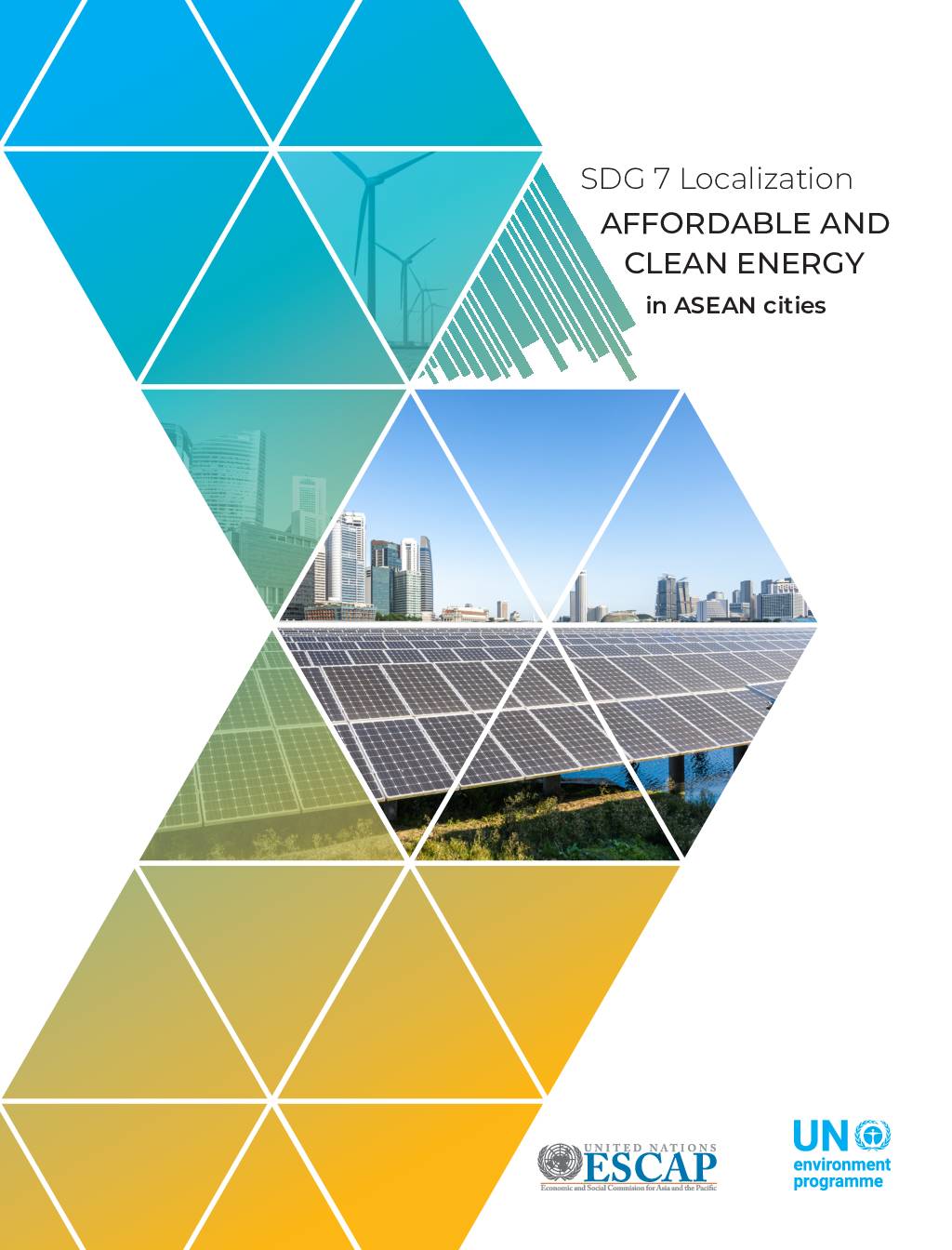ASEAN cities continue to grow in terms of population and economic output. This has seen a doubling of the rate of carbon dioxide (CO2) emissions over the past 25 years. However, to ensure that the gains of urbanization are captured in order to support the Sustainable Development Goals (SDGs) and other global agendas, transformative changes are needed. The way ASEAN cities are designed, planned and managed must change if we want to ensure that the gains of urbanization in meeting the SDGs and other Global Agendas are retained. However, according to the International Resource Panel’s ‘The Weight of Cities’ report (IRP, 2018), adoption of an integrated approach to urban energy and related investments – as well as building linkages between the urban socio-technological subsystems of energy, transportation, urban greenery, waste management and buildings that lead to synergies and efficiencies – can offer up to 20-fold improvement in resource use and energy efficiency, with a potential for a 35-55 per cent reduction in greenhouse gas emissions.
The increasing decentralization in ASEAN opens up the potential for increased autonomy and freedom in policy and decision-making for cities, including setting their own local agendas and infrastructure investment plans. These changes will provide more opportunities for cities to prioritize an integrated approach to urban energy and to build linkages between the urban subsystems of energy, transportation, urban greenery, waste management and buildings. However, the utilization of these opportunities can only happen if cities and local governments are: (a) able to identify, evaluate and give precedence to sustainable energy solutions; and (b) empowered to coordinate needed efforts within their jurisdiction with national, regional and international collaborators towards achieving SDGs in general, and SDG 7 on affordable and clean energy, in particular.
This report presents the results of the research and analytical work initiated by ESCAP, in collaboration with the United Nations Environment Programme (UNEP) and the United Cities and Local Governments Asia Pacific (UCLG ASPAC), and under the grant support from the Energy Foundation China. The cornerstone of this work is the development of the analytical framework for assessing cities’ status on SDG 7 localization across key areas of the SDG localization process and its application to the selected cities and subnational jurisdictions in ASEAN.
Link to resource Download sourceShare this

Sector: Cross cutting
Country / Region: Asia
Tags: carbon dioxide, corporate reporting, emissions, energy efficiency, infrastructure investments, international development, sustainable development, Sustainable Development Goals, sustainable livelihoods approaches, United NationsIn 1 user collection: C2E2 Contributions
Knowledge Object: Publication / Report
Published by: United Nations
Publishing year: 2021
